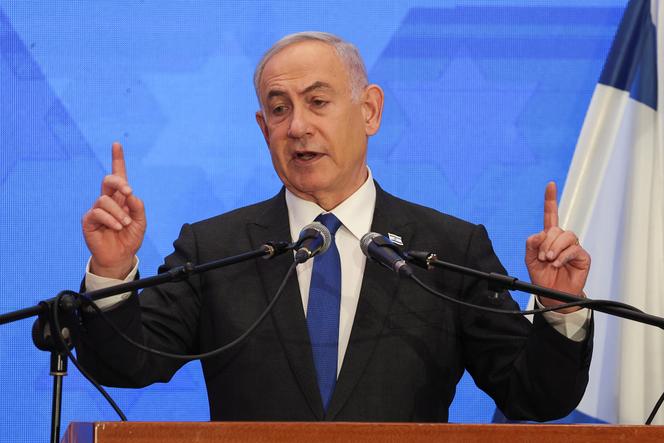


Israeli Prime Minister Benjamin Netanyahu has proposed a plan for post-war Gaza that envisions local Palestinian officials without links to Hamas or its foreign backers governing the territory.
The proposal, which was swiftly rejected by the Palestinian Authority, was submitted to Netanyahu's security cabinet late on Thursday, February 23, and would also see the Israeli army persisting in its war on Hamas until it achieves key goals. Those include dismantling Hamas and the Palestinian Islamic Jihad, and securing the release of all hostages still held captive in Gaza, according to the proposals, which were seen by Agence France-Presse (AFP) on Friday.
After the war ends, Gaza's civil affairs would be run by "local officials with administrative experience" and who are "not linked to countries or entities that support terrorism." The plan envisages Gaza's "complete demilitarisation [...] beyond what is required for the needs of maintaining public order." It aims to promote "de-radicalization in all religious, educational and welfare institutions in Gaza."
Even after the war, the Israeli army would have "indefinite freedom" to operate throughout Gaza to prevent any resurgence of terror activity, according to the plan. "The plan states that Israel will move forward with its already-in-motion project to establish a security buffer zone on the Palestinian side of the strip's border," it said, adding the zone would remain "as long as there is a security need for it."
Beirut-based Hamas official Osama Hamdan on Friday lambasted the plan, saying it "will never succeed": "When it comes to the day after in the Gaza Strip, Netanyahu is presenting ideas which he knows fully well will never succeed," Hamdan told reporters. He added that the plan indicates that Netanyahu "absolutely refuses to recognize a Palestinian state" and "insists on separating the West Bank and Gaza, Jerusalem and the West Bank." "This means that this entity's [Israel's] real plan is to seize Palestinian lands and fragment them," Hamdan said.
US Secretary of State Antony Blinken said he would "reserve judgement" until seeing all the details, but said that there should be "no Israeli reoccupation of Gaza." "The size of Gaza territory should not be reduced," he added.
Some elements of the Netanyahu plan conflict with Washington's vision for post-war Gaza. The United States has backed Netanyahu's call to eradicate Hamas, which controls Gaza, but has called for the Palestinian Authority, led by Mahmoud Abbas in the occupied West Bank, to gradually take over control in Gaza.
The proposed plan also envisages Israeli security control "over the entire area west of Jordan" from the land, sea and air "to prevent the strengthening of terrorist elements in the [occupied West Bank] and the Gaza Strip and to thwart threats from them towards Israel."
Another key element of the plan was the dismantling of the UN agency for Palestinian refugees, UNRWA. Israel has alleged that several employees of UNRWA took part in the October 7 attack on Israel. The United Nations sacked the employees accused by Israel and has begun an internal probe of the agency. Since the Israeli allegations emerged several countries have suspended their funding to the agency.
The plan also has elements concerning the Egypt-Gaza border, which has been plagued by smuggling. It said a "southern closure" on the frontier would be enforced to prevent a revival of any terror or smuggling activity.
On Friday, Abbas's spokesman slammed the plan. "Gaza will only be part of the independent Palestinian state with Jerusalem as its capital," Nabil Abu Rudeineh said, according to Palestinian official news agency Wafa. "Any plans to the contrary are destined to fail. Israel will not succeed in attempts to alter the geographic and demographic reality in the Gaza Strip," he added. "If the world wants security and stability in the region, it must end the Israeli occupation of Palestinian territories and recognize the independent Palestinian state with Jerusalem as its capital," Abu Rudeineh said.
Netanyahu has long denounced the Palestinian Authority, and on Wednesday Israel's parliament also backed another proposal opposing any unilateral recognition of a Palestinian state.
